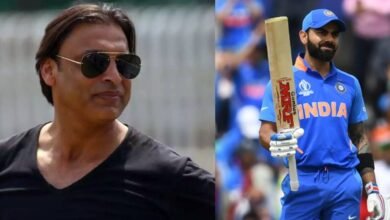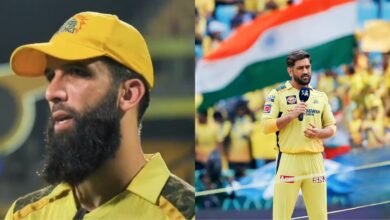
Australia is the most prosperous country in ODI cricket history. Having featured in over 950 ODI games, the nation enjoys a win percentage of close to 63. This is the best amongst teams that have played so many matches. Not just that, Australia has five ODI World Cups in their cabinet, the highest in history. For a country that oozes cricketing pedigree in this format, let’s take a look at the all-time best Australian XI in ODI cricket
Openers: Adam Gilchrist (WK) and Mark Waugh
Of course, it is Adam Gilchrist who will open the batting for this XI. The second-highest run-scorer and the best wicket-keeper for Australia in ODI’s, Gilly is the natural option to take this place. A serial World Cup winner, the southpaw’s knock of 149 runs against Sri Lanka in the 2007 World Cup final was one of his most memorable performances.
With 8500 runs in 244 games, Mark Waugh happens to be the third-highest run-getter for the Aussies in ODI’s. He was one of the opening greats for the nation, a position in which he could score 15 centuries and 32 fifties in 141 innings.
Middle-Order: Ricky Ponting (C), Michael Clarke and Michael Bevan
Around the break of this century, Australia dominated an era of the sport. Ricky Ponting was at the centre of it while batting at No.3 and captaining the squad. Man of the Match of the 2003 World Cup final, Ricky is the all-time third highest run-scorer in ODI’s, and no one has a better ODI record than him in Australia. No player in ODI history has operated in more matches than Punter as a captain, and hence, he is the captain of this XI.
One of the most complete No.4’s in this format, Michael Clarke also features in the all-time best Australian XI in ODI cricket. Clarke was also the captain when Australia won the World Cup in 2015.
It was Michael Bevan who set the template of an ‘ideal finisher’ in ODI’s. Despite playing in the lower middle-order, Bevan has scored 6912 runs in 232 games. He was also a decent left-arm wrist-spinner which got him 36 wickets in his ODI career.
All-Rounders: Steve Waugh and Andrew Symonds
One of Australia’s major strengths is that they produced multi-utility cricketers consistently. This helped them to field a balanced XI in every game. If the main bowlers were under the pump, Australia had the likes of Mark Waugh, Michael Bevan and even Michael Clarke chip in with a few wickets.
However, it was Steve Waugh and Andrew Symonds who did that regularly. They were pure batsmen but almost inevitably contributed with the ball in every encounter.
While the 1999 World Cup-winning captain Steve Waugh scored 7569 runs and took 195 wickets in 325 ODI games, Symonds accumulated 5088 runs and 133 scalps in 198 games. To put Waugh’s performance into perspective, he actually finished with more ODI wickets than the likes of Jason Gillespie and Damien Fleming.
Bowlers: Shane Warne, Brett Lee, Mitchell Johnson, and Glenn McGrath
Shane Warne was hands down the best spinner that Australia has produced. The Player of the Match in the 1999 World Cup final, Warne has 293 wickets in just 194 ODI games. The leggie still holds the record for the most consecutive four-wicket hauls (3) in ODI history.
The all-time best Australian ODI XI in ODI cricket features an exemplary pace attack comprising Glenn McGrath, Brett Lee and Mitchell Johnson. For any cricket coach, this attack is drool-worthy as this trio possesses every attribute you need in a bowling attack for an ODI encounter.
Very few bowlers could bowl swing better than McGrath. With over 381 ODI wickets, the Aussie is one of the legends of the game. One of his finest performances was where he collected 27 wickets in a single series in 1998.
Brett Lee and Mitchell Johnson were bowlers who often rattled the batsmen with their raw pace. Lee has actually collected 380 wickets, just one less than the legendary McGrath. Johnson, on the other hand, played only 153 games but was impactful by collecting 239 wickets at an average of 25.26.



